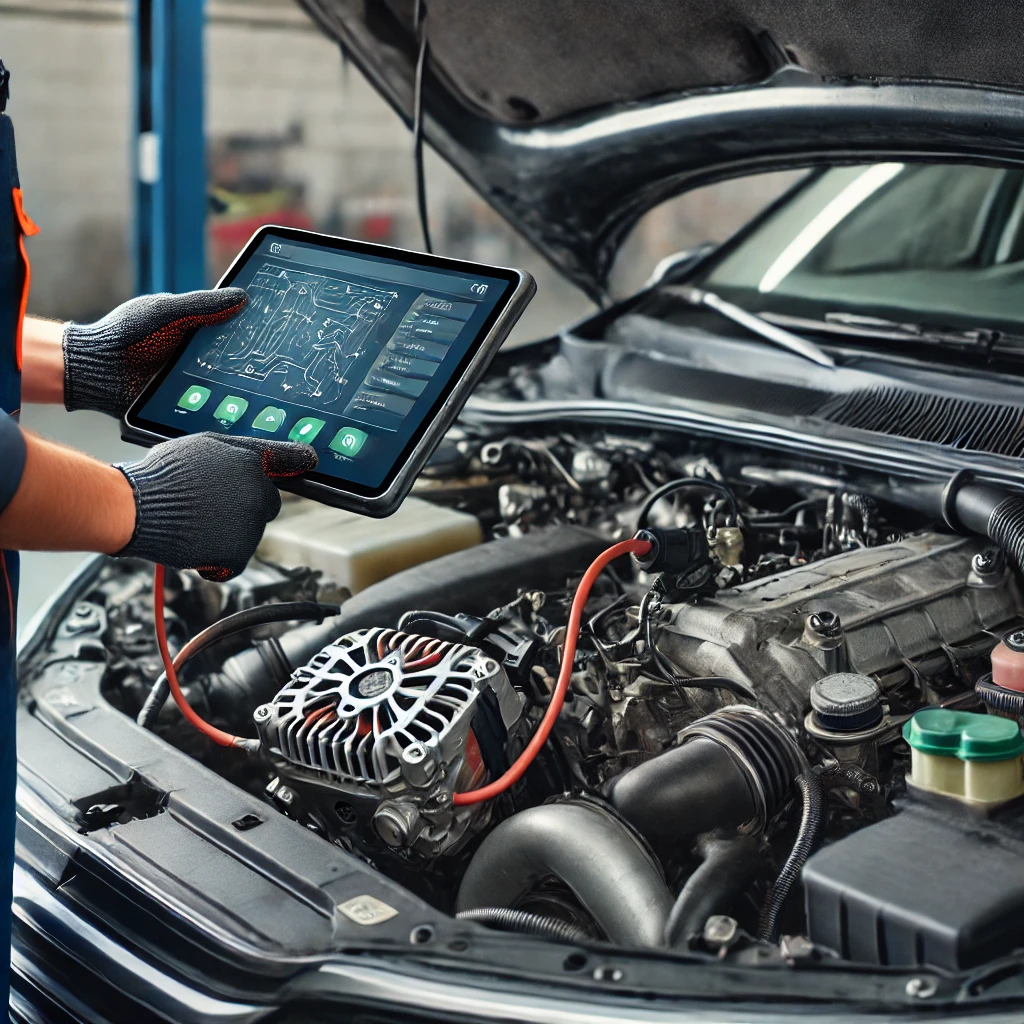Alternator replacement isn’t cheap, but it’s a repair you can’t skip when the warning signs hit. Costs can swing from a few hundred bucks to nearly a grand, depending on your car and where you get it done. Knowing what drives those numbers—and how to trim them—can ease the sting. In this article, we’ll break down the price of alternator replacement, explore the variables at play, and share savvy ways to save, whether you’re DIYing or hitting the shop.
The Average Price Tag
Expect to pay $300-$800 for a full alternator replacement, parts and labor included. Here’s the split:
- Parts: A new alternator runs $100-$500. Basic models for a Toyota Corolla might be $150, while a Mercedes-Benz could hit $400+.
- Labor: Mechanics charge $100-$300, based on hourly rates ($50-$150/hour) and time (1-3 hours).
A 2015 Ford Focus might total $350, while a 2020 Audi Q5 could climb to $750. Why the gap? It’s all about the car, the alternator, and where you are.
What Drives the Cost?
Several factors shape the bill:
- Vehicle Type: Luxury cars and trucks often need pricier alternators and more labor. A BMW’s high-output unit costs more than a Kia’s standard one.
- Alternator Specs: Higher amperage (e.g., 150 amps vs. 80 amps) means higher prices, especially for tech-heavy rides.
- Labor Rates: Big-city dealerships might charge $120/hour; rural indie shops might do $60/hour.
- Accessibility: If the alternator’s buried—like in some V8s—labor time doubles. A Dodge Ram might take 3 hours, jacking up costs.
- Extras: A dead battery ($50-$200) or chewed-up wiring ($50-$100) can sneak in, especially if the alternator failed hard.
Take Mike’s story: his 2018 Jeep Wrangler needed a $450 fix—$200 for the alternator, $250 for labor—because the tight engine bay took extra time. Compare that to a $320 job on his wife’s Civic, and you see how variables add up.
DIY vs. Professional: The Cost Trade-Off
Going DIY slashes labor costs, dropping the total to $100-$500, depending on the alternator. You’ll need tools (wrenches, multimeter, maybe $50-$100 if you’re starting fresh) and a couple hours. For a $150 alternator, that’s $150-$250 out of pocket—half a shop’s price. But it’s not all roses: you need skill, time, and confidence. Mess up, and you could fry something expensive. Shops charge more but bring expertise and warranties—peace of mind has a price.
How to Cut Costs
Pinching pennies? Try these:
- Compare Parts: AutoZone might sell a $180 alternator that’s $250 at a dealership. Online retailers like RockAuto can dip lower—$120 with shipping.
- Remanufactured Units: Rebuilt alternators cost 20-50% less ($80-$300) and often match new ones in reliability with a warranty.
- Shop Quotes: Call three mechanics—a chain like Pep Boys, a local guy, and a dealer. Rates can vary $50-$100/hour.
- DIY Where You Can: Even if you don’t replace it, testing it yourself avoids a $50 diagnostic fee.
- Bundle Work: Need brakes too? Combine jobs to cut labor overlap—mechanics often discount this.
Sarah saved $150 by buying a $130 remanufactured alternator online and having her local shop install it for $180, beating the dealer’s $460 quote. Smart shopping pays.
Hidden Costs to Watch
The bill can creep up:
- Battery Swap: A fried alternator can kill a battery—add $50-$200 if it’s toast.
- Wiring Fixes: Corroded cables or blown fuses might tack on $50-$150.
- Diagnostics: Some shops charge $50-$100 to test, though many waive it with repair.
Always ask for a full quote upfront—parts, labor, and any extras—to avoid surprises.
Is It Worth It?
For a $20,000 car with 50,000 miles, $500 is a no-brainer—it’ll run years more. But a $2,000 beater with 200,000 miles? If repairs pile up, it might not pencil out. Kelley Blue Book suggests comparing repair costs to trade-in value. If it’s 50% or more, think hard about replacing the car instead.
The Long-Term View
Alternators last 100,000-150,000 miles, but neglect—like ignoring a slipping belt—can cut that short. Spending $400 now beats a $1,000 tow-and-repair later. Plus, a new alternator keeps your electrical system humming, avoiding domino-effect damage to batteries or computers.
Conclusion
Alternator replacement costs hinge on your car, the part, and who’s turning the wrench. At $300-$800, it’s not pocket change, but DIY options and smart shopping can lighten the load. Weigh your skills, budget, and vehicle’s worth before deciding. With a little planning, you’ll keep your car—and your finances—on the road.

